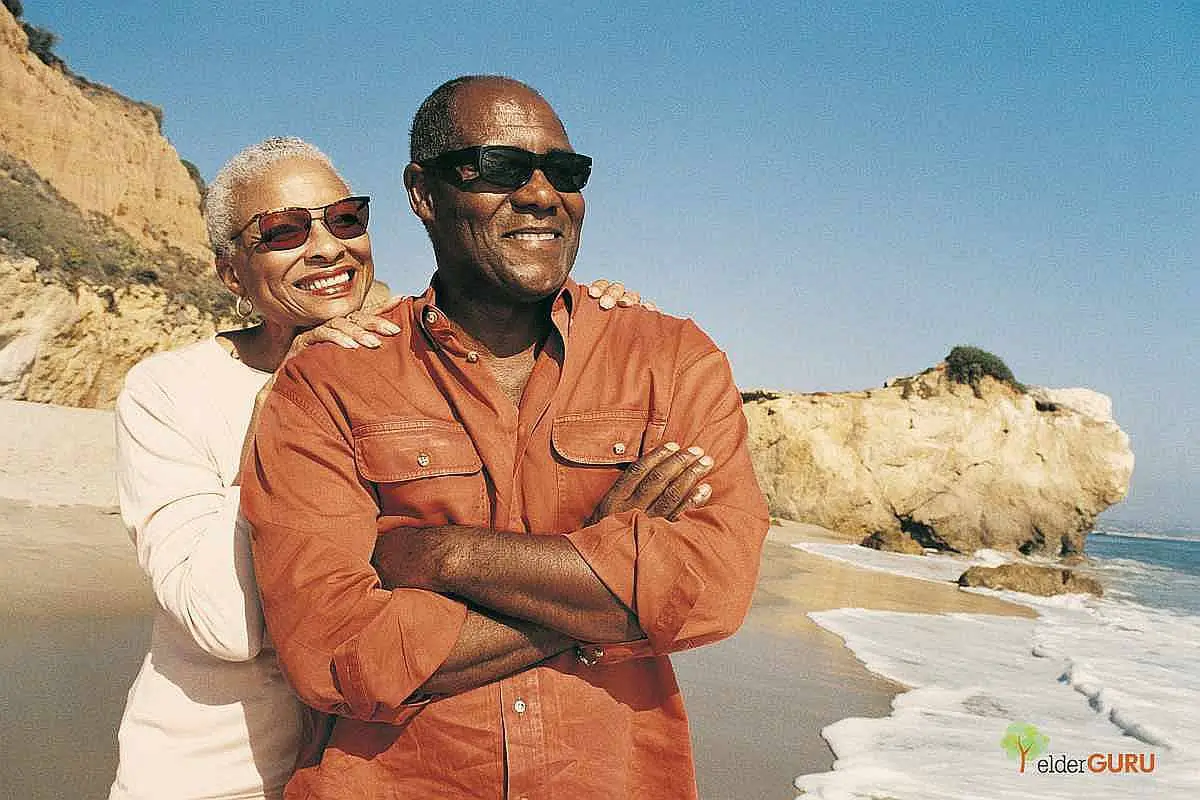In the wake of retirement, a peculiar and unsettling phenomenon has been observed: retirees often experience a decline in health and an increased risk of mortality shortly after leaving the workforce. While retirement is typically viewed as a time of relaxation and enjoyment, some research suggests that this transition can lead to unexpected consequences on one’s physical and mental well-being.
In this article, we’ll delve into the perplexing question: why do retirees die soon after retirement? While there is no evidence that retirement necessarily equates to death, people still talk about it happening.
By examining the various factors contributing to this phenomenon, from changes in lifestyle and social dynamics to the psychological impact of retirement, we aim to shed light on this intriguing yet concerning aspect of post-work life. Through understanding the underlying mechanisms at play, we hope to provide insights into how individuals can navigate retirement transitions more effectively and promote healthier aging outcomes.
Early Retirement Risks
Early retirement, before the age of 62, has been associated with higher mortality risk in some instances. A study of Shell Oil employees found that those who retired at 55 and lived to be 65 died 37 percent sooner than those that retire at 65. And in general, people who retire at 55 are 89 percent more likely to die within ten years than those that retire at 65.
Social Security has noticed this trend, as well. Men who retire at 62 have a 20 percent higher likelihood of death than the general population. However, retiring early for women causes no increase in mortality rates.
If early retirement is due to health issues, especially respiratory, circulatory, musculoskeletal, or digestive disorders, the mortality rate increases even more. Limited access to health care, both before and after retirement, also raises the incidence of mortality. When any of these factors are present, it’s no surprise that those health issues catch up with the person shortly after retirement. In most instances, continuing to work would not have extended the lifespan of the person.
Retiring at 65 Statistics
One study looked at groups who retired at 65 and found that lower-status workers were more likely to die within three years of retirement. Higher status workers lasted longer, averaging four to five years after retirement. Not surprisingly, a larger percentage of those who retire at 65 are college-educated than those who retire at 62. Generally, studies have found that the lower the income and educational level, the higher the retirees’ mortality rate. This difference can be attributed to leisure time activities after retirement and access to health care.
Those that found their identity through work will naturally find it harder to adapt after retirement. Individuals may feel lost, unsure of who they are or what they should be spending their time on. This feeling leads to inactivity, increasing alcohol consumption, and depression.
Retiring at 66+
Working longer seems to reduce the likelihood of early death. Healthy workers that continued to work until they were 66 had an 11 percent reduced mortality risk. Workers with health conditions that worked until they were 66 still had a 9 percent reduced mortality risk.
Possible Risk Factors
One reason for the reduced lifespan among retirees of any age may be the abrupt change in lifestyle that comes with retirement. Men and women approach retirement differently. It seems that gender certainly plays a part in life expectancy among retirees.
Male retirees tend to drink more, watch more TV, and are generally more sedentary than their still-working counterparts. They also have fewer social interactions and smoke more. All of these have a profound impact on health. Single and divorced men are more likely to die earlier than married men.
On the other hand, women tend to stay more active, continue to socialize regularly, and overall find retirement a satisfying life stage. The job a woman had before retiring may impact her risk of mortality more than anything else. One study found that retired women who had non-manual jobs had an increased risk of heart disease-related death, whether they retired early or not.
Life Expectancy
The previous studies do not imply that you will die soon after you retire. If you retire at 65, you have a 76 percent chance of living ten more years, a 38 percent chance of living 20 more years, and a 5 percent chance of living another 30 years. The life expectancy for men in the United States is 78.54 years. Women tend to live longer than men generally and have a life expectancy of 81.1 years. So, statistically, not everyone dies soon after retirement.
How To Prevent An Early Death After Retirement
Although you may not choose the age you retire, you can decide what to do with the time on your hands after retirement. To avoid poor health and for the best health after retirement, mentally and physically, you should:
- Eat a nutritious diet
- Maintain a healthy weight
- Stay active
- Stop smoking
- Drink moderately or not at all
- Reduce stress
- Maintain social contacts
- Find meaningful tasks (travel, hobbies, volunteering)
Volunteering
Studies have shown that maintaining a healthy lifestyle and emotional well-being is good for you. Volunteering provides a sense of meaning, has been shown to reduce stress, and can help you maintain social contacts. Whether you volunteer in a nursing home, deliver meals on wheels, or work in a soup kitchen, the engagement gets you active and improves your social life.
Because of the still lingering restrictions in place in many areas, many nonprofit organizations are still limiting their activities. If you find limited volunteer opportunities in your area, consider fostering a pet from the shelter, setting up a phone tree to check on other retirees and elderly individuals in your area, or offering to read to children during a story time in your library.
Consider contacting one of the following organizations:
- VolunteerMatch has listings in their virtual volunteer program, including health and medicine, community building, and education. You can help others from home or online worldwide.
- Idealist has local and virtual volunteer listings that you can search by skill type.
- AmeriCorps Seniors are volunteer positions available to those over 55. You can become a foster grandparent, senior companion or use your skills to help others.
- If you are more of an outdoorsy person, Volunteer has hundreds of volunteer positions at national parks throughout the country.
- The U.S. Peace Corps has a 50 Plus division. Volunteers are needed both here and abroad.
- The American Red Cross is looking for volunteers. If you can sew, there are currently quite a few projects they could use your assistance with.
Further Reading
Retiring doesn’t have to be a death sentence. There are hundreds of ways that you can create a second life after your working life is over.
Here are some great books to get you started on a path toward a happy, healthy retirement:
- Zelinski, Ernie J. (Author)
- English (Publication Language)
- Foley, Patrick (Author)
- English (Publication Language)
- Bellah, Mike (Author)
- English (Publication Language)
- Gilbert, Fritz (Author)
- English (Publication Language)
Frequently Asked Questions (FAQs)
What is the average lifespan after retirement?
The average lifespan after retirement varies depending on various factors such as individual health, lifestyle choices, and access to healthcare. On average, people are living longer than in previous generations due to advancements in medicine and healthcare, as well as improvements in living conditions and lifestyle choices.
According to data from the U.S. Social Security Administration, a man reaching the retirement age of 65 today can expect to live, on average, until about age 84, while a woman turning 65 can expect to live, on average, until about age 86. However, these are just averages, and while statistically significant, many individuals live well beyond these ages. It’s essential to plan for a potentially long retirement by ensuring financial security and maintaining a healthy lifestyle into older ages.
What is the post-retirement syndrome?
Post-retirement syndrome refers to a collection of symptoms and emotions that some individuals may experience after retiring from their career or occupation. These symptoms can include feelings of sadness, loss of identity, lack of purpose, decreased self-esteem, and anxiety about the future. Retirement can represent a significant life transition, and for some individuals, it may lead to a sense of uncertainty or even depression as they adjust to a new routine and lifestyle.
However, it’s essential to note that not everyone experiences post-retirement syndrome, and the severity and duration of symptoms can vary widely from person to person. Strategies such as staying socially connected, pursuing hobbies or interests, and seeking support from friends, family, or mental health professionals can help individuals navigate this transition period more smoothly and find fulfillment in their retirement years.
What is the normal retirement age in the United States?
In the United States, the normal retirement age for Social Security benefits depends on the year of birth. For those born in 1960 or later, the full retirement age is 67 years old. However, individuals can choose to start receiving reduced Social Security benefits as early as age 62, or they can delay retirement and receive increased benefits if they wait until after their full retirement age to start claiming. Additionally, many employers have their own retirement age policies, which may vary depending on the company and industry.
Final Thoughts
Will early retirement lead to unexpected financial difficulties if not carefully considered and planned for in advance? Possibly. Will early retirement lead to poor health later on? Possibly. Is both an early and normal retirement potentially dangerous for overall health and longevity of life? Possibly. Are social security benefits important to consider when thinking about retirement? Absolutely. Does socioeconomic status come into play when thinking through potential plans and decisions? Yes. Does labor force participation influence potential options for normal retirees? Yes. Is there a significant difference between those who retire early and normal retirement folks? In the big picture, not so much.
So, while the phenomenon of retirees passing away shortly after retirement has been observed, it is crucial to recognize that various factors contribute to this occurrence, including changes in lifestyle, loss of purpose, and health-related issues.
By understanding these factors and taking proactive steps to maintain physical, mental, and emotional well-being during retirement, individuals can potentially mitigate the risks associated with this transition period. Additionally, fostering strong social connections, staying engaged in meaningful activities, and prioritizing self-care can help retirees lead fulfilling and healthy lives well beyond retirement years.
Ultimately, by acknowledging the challenges and opportunities that come with retirement, individuals can strive to create a fulfilling and purpose-driven post-retirement life that contributes to their overall longevity and well-being.
What do you do, or plan to do, in retirement? Let us know in the comments below.
About the Authors
Derrick has worked as a social worker in a nursing home, as the Social Services Manager at an area agency on aging, as Director of an Adult Day Care at an Alzheimer’s care facility, and has served on the board of the Maine Adult Day Services Association. He’s also worked for the State of Maine as a Research Analyst at the Office of Elder Services. He now works as a Program Manager on Medicaid policy, and writes on topics related to healthy aging, sustainable caregiving, and Alzheimer’s Disease.
Leona Small is a freelance writer and former caregiver. She has experience working with people with Alzheimer’s Disease and related dementias and has spent years working alongside both patients and caregivers in Hospice. Additionally, she’s worked as a Professional Organizer helping people and families to purge, organize, manage, and prepare for various life transitions such as moving, downsizing, and the passing of loved ones. Her passions include writing about healthy aging, innovative resources to help older adults and caregivers, and traveling.











3 comments
Listen to your body and your intuition.
Be pro-active and take charge of your life
Find reasons why life is worth living
Do enjoyable things
Spend time with your tribe or people you enjoy
Monitor your health
Assess holistic and conventional medical care
Determine where you can have the best life and go there
Believe!
There is a difference between Quality living and life.
Hospitals, Care homes and Hospices are full of people on the high end of the table.
Work part-time